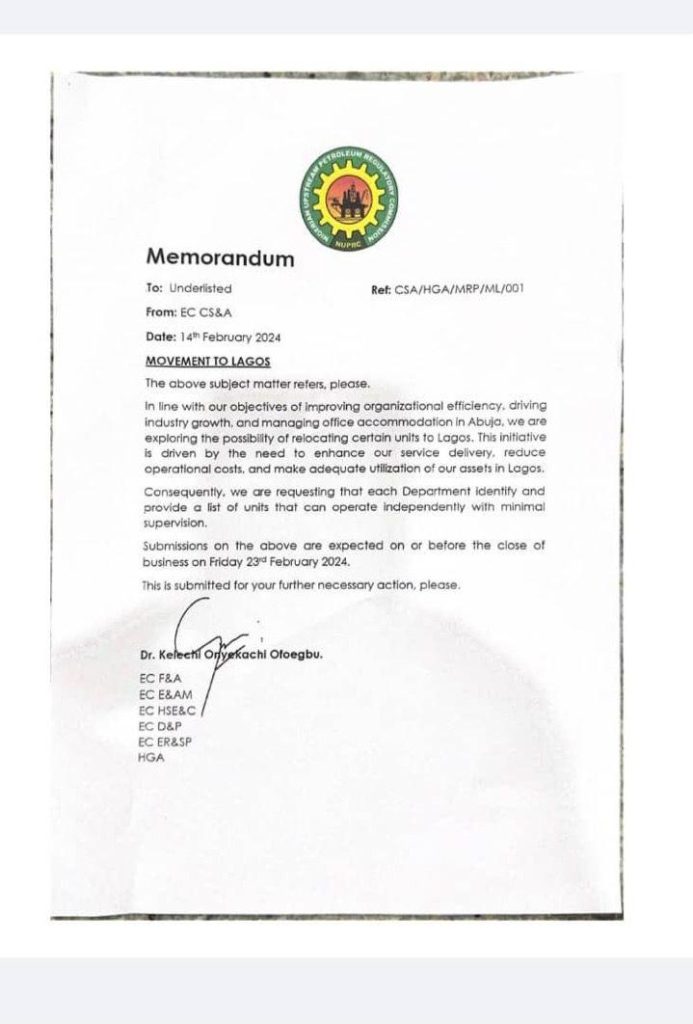The Petroleum Commission has decided to relocate some of its key departments to Lagos, Nigeria’s former capital.
The development comes on the heels of the recent relocation of the Federal Airport Authority of Nigeria (FAAN) headquarters to Lagos.
The memo dated February 14, 2024, said the decision was to enhance its service delivery, reduce operational costs, and make adequate utilisation of its assets in Lagos.
“In line with our objectives of improving organizational efficiency, driving industry growth, and managing office accommodation in Abuja, we are exploring the possibility of relocating certain units to Lagos.
“This initiative is driven by the need to enhance our service delivery, reduce operational costs, and make adequate utilization of our assets in Lagos.
“Consequently, we are requesting that each department identifies and provides a list of units that can operate independently with minimal supervision.
“Submissions on the above are expected on or before the close of business on Friday 23rd February 2024.
“This is submitted for your further necessary action, please.”
The memo was signed by Dr Kelechi Onyekachi Ofoegbu on behalf of the commission.
The Yoruba Times gathered that The NUPRC (formerly DPR) was headquartered in Lagos until 2019 when former President Buhari moved it to Abuja.
It was a very bad decision because the NUPRC had to end up renting a small space in Jabi, Abuja, leaving behind a huge building at Victoria Island Lagos.
This is also the case as regards unnecessarily controversial recent relocation of the Federal Airport Authority of Nigeria (FAAN) headquarters to Lagos
( Relocated from Its original base, Lagos where it has operated for decades until recently to Abuja by Senator Hadi Sirika, former minister of Aviation under the former Buhari administration.
Sirika had in a letter dated 4th May, 2020 FMA/PMD/7061/T/4 and signed by the then director, Human Resource Management, Alhaji Mohammad Shehu argued that the relocation order was premised on the current global economic situation and the need to reduce cost of governance).

